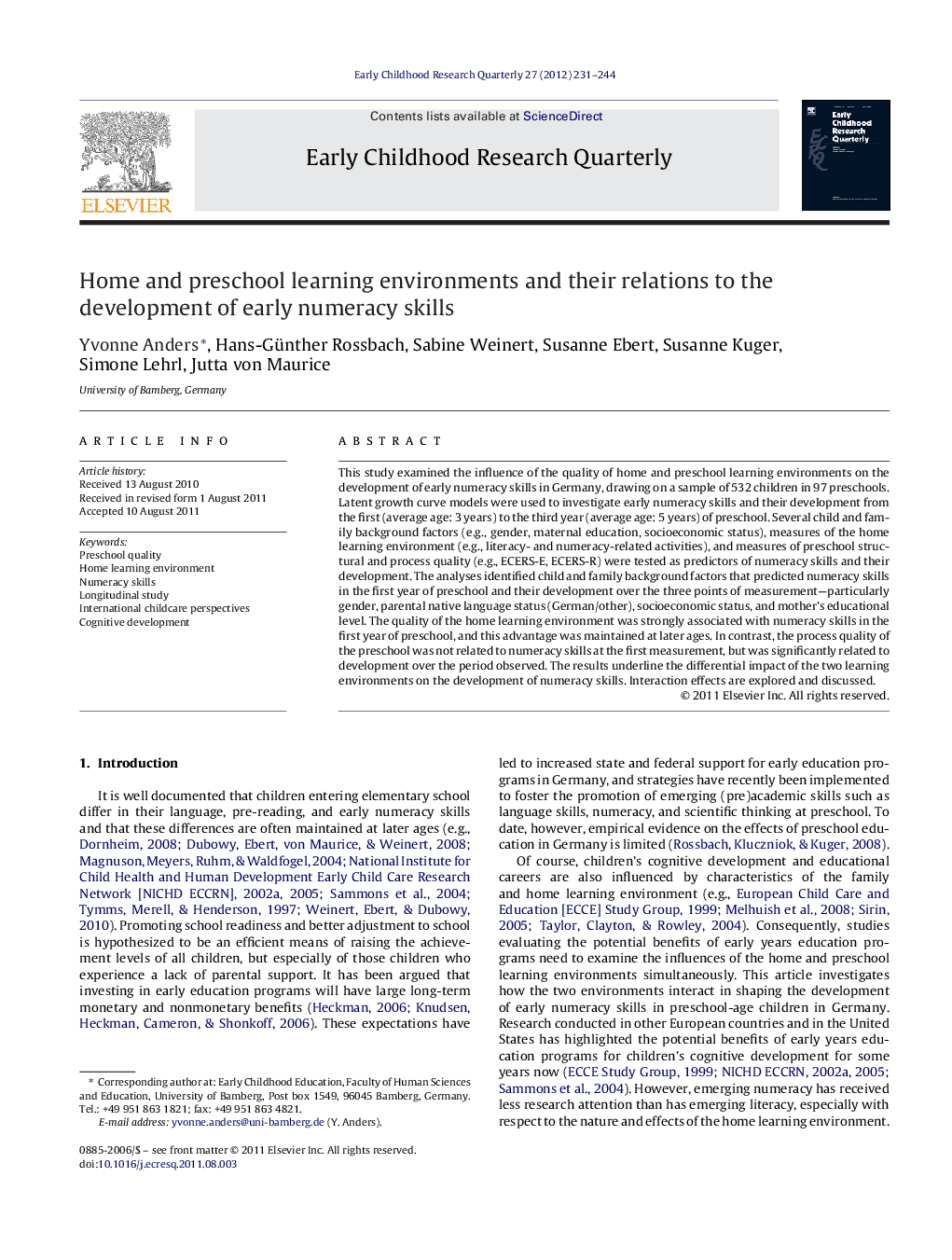| Article ID | Journal | Published Year | Pages | File Type |
|---|---|---|---|---|
| 353839 | Early Childhood Research Quarterly | 2012 | 14 Pages |
This study examined the influence of the quality of home and preschool learning environments on the development of early numeracy skills in Germany, drawing on a sample of 532 children in 97 preschools. Latent growth curve models were used to investigate early numeracy skills and their development from the first (average age: 3 years) to the third year (average age: 5 years) of preschool. Several child and family background factors (e.g., gender, maternal education, socioeconomic status), measures of the home learning environment (e.g., literacy- and numeracy-related activities), and measures of preschool structural and process quality (e.g., ECERS-E, ECERS-R) were tested as predictors of numeracy skills and their development. The analyses identified child and family background factors that predicted numeracy skills in the first year of preschool and their development over the three points of measurement—particularly gender, parental native language status (German/other), socioeconomic status, and mother's educational level. The quality of the home learning environment was strongly associated with numeracy skills in the first year of preschool, and this advantage was maintained at later ages. In contrast, the process quality of the preschool was not related to numeracy skills at the first measurement, but was significantly related to development over the period observed. The results underline the differential impact of the two learning environments on the development of numeracy skills. Interaction effects are explored and discussed.
► We examined the influence of the quality of home and preschool learning environments on the development of early numeracy skills in Germany. ► The quality of the home learning environment was strongly associated with numeracy skills in the first year of preschool. ► Higher process quality of the preschool was related to better development over the preschool period observed. ► Parental support at home seems to be a precondition for academic stimulation at preschool in Germany. ► Our study demonstrates the value of investigating domain-specific aspects of preschool education, rather than restricting research to global quality indicators.
